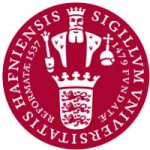项目介绍
The Niels Bohr Institute invites applicants for a PhD fellowship in biocomplexity under the supervision of associate professor of biophysics Ala Trusina. This project focuses on the development of bio-inspired algorithms to direct the emergence of 3D complex shapes both biological and artificial systems. Starting dates is expected to be 1 September or as soon as possible thereafter.
The project
Living systems are fascinating computers. Based on constantly changing inputs ourbody does the right thing in the right place and time. Biological multicellular computationis precise, able to error-correct and self-repair. How do living systems achieve this? The explanation may be in the physical nature of computation, where unlike in modern computers, the information is encoded and processed in real time and space by e.g. gradients of signaling molecules and communication between cells.
This PhD project aims to understand and manipulate the morphogenetic processes that form biological structures and apply these insights to the design of programmable, self-organizing artificial systems. This project is a part of the activities of Trusina lab at NBI (Niels Bohr Institute, University of Copenhagen) , bridging the artificial intelligence and biophysical modeling with and developmental and stem cell biology to create novel distributed Physical Computation algorithms .
Work in morphogenetic engineering aims to create human-engineered systems with the desirable properties of natural morphogenesis, such as increased robustness, adaptability, and ability to self-repair. In this project, we will focus on an easily manipulatable in vitro 2D gastrulation. The project will combine cell culture experiments, time-lapse and fixed-samples imaging, and agent-based model of patterning during in vitro gastrulation.
The research environment
We are part of the Unibiolab, in the Biocomplexity section at the Niels Bohr Institute.
We are interested in uncovering the unifying principles in complex biological systems. We combine theoretical and computational models with quantitative experiments and collaborate across physics, biology and medicine. Our current focus is on what cells can achieve collectively, how far can they go beyond what single cells can do on their own. A few examples are: ways to counteract stresses, balance their relative abundances in developing organs; encode and send the information across tissue and form complex and stable shapes in organs and organisms.
At Biocomplexity we offer a creative and exciting research atmosphere at the vibrant border between AI, physics and biology, with research ranging from viruses to development in humans and plants.
Who are we looking for?
We are looking for a highly motivated and creative candidate with a robust background in computer science or physics and strong interest in applying these skills to biological and robotic systems. Furthermore, we are looking for a candidate with strong interest in combining computational models with experiments (cell culture and microscopy).
The successful candidate must demonstrate:
– A Master’s degree in physics, applied mathematics, computational biology, or a related field.
– Strong analytical and computational skills.
– A passionate interest in interdisciplinary research that bridges the gap between theoretical biophysics, biology and practical technological applications.
– Excellent English proficiency.
Principal supervisors: Associate Professor Ala Trusina, Biocomplexity Section, Niels Bohr Institute, University of Copenhagen, trusina@nbi.ku.dk.
The PhD programme: Depending of your level of education, you can undertake the PhD programme as either:
Option A: A 3-year full-time study within the framework ofthe regular PhD programme (5+3 scheme), if you already have an education equivalent to a relevant Danish master’s degree.
Option B: An up to 5 year full-time study programme within the framework ofthe integrated MSc and PhD programme (the 3+5 scheme), if you do not have an education equivalent to a relevant Danish master´s degree – but you have an education equivalent to a Danish bachelors´s degree.
********************************************************************************
Option A: Getting into a position on the regular PhD programme
Qualifications needed for the regular programme
To be eligible for the regular PhD programme, you must have completed a degree programme, equivalent to a Danish master’s degree (180 ECTS/3 FTE BSc + 120 ECTS/2 FTE MSc) in physics or applied mathematics or a related field. For information of eligibility of completed programmes, seeGeneral assessments for specific countries andAssessment database.
Terms of employment in the regular programme
Employment as PhD fellow is full time and for maximum 3 years.
Employment is conditional upon your successful enrolment as a PhD student at the PhD School at the Faculty of SCIENCE, University of Copenhagen. This requires submission and acceptance of an application for the specific project formulated by the applicant.
The terms of employment and salary are in accordance to the agreement between the Ministry of Finance and The Danish Confederation of Professional Associations on Academics in the State (AC). The position is covered by the Protocol on Job Structure.
Option B: Getting into a position on the integrated MSc and PhD programme
Qualifications needed for the integrated MSc and PhD programme
If you do not have an education equivalent to a relevant Danish master´s degree, you might be qualified for the integrated MSc and PhD programme, if you have an education equivalent to a relevant Danish bachelor´s degree. Here you can find out, if that is relevant for you:General assessments for specific countries andAssessment database.
Terms of the integrated programme
To be eligible for the integrated scholarship, you are (or are eligible to be) enrolled at one of the faculty’s master programmes in Physics.
Students on the integrated programme will enroll as PhD students simultaneously with completing their enrollment in this MSc degree programme.
The duration of the integrated programme is up to five years, and depends on the amount of credits that you have passed on your MSc programme. For further information about the study programme, please see:www.science.ku.dk/phd, “Study Structures”.
Until the MSc degree is obtained, (when exactly two years of the full 3+5 programme remains), the grant will be paid partly in the form of 48 state education grant portions (in Danish: “SU-klip”) plus salary for work (teaching, supervision etc.) totalling a workload of at least 150 working hours per year. A PhD grant portion is DKK 7,076
When you have obtainedtheMSc degree, you will transfer to the salary-earning part of the scholarship for a period of two years. At that point, the terms of employment and payment will be according to the agreement between the Ministry of Finance and The Danish Confederation of Professional Associations on Academics in the State (AC). The position is covered by the Protocol on Job Structure.
Responsibilities and tasks in both PhD programmes
- Complete and pass the MSc education in accordance with the curriculum of the MSc programme (ONLY when you are attending the integrated MSc and PhD programme)
- Carry through an independent research project under supervision
- Complete PhD courses corresponding to approx. 30 ECTS / ½ FTE
- Participate in active research environments, including a stay at another research institution, preferably abroad
- Teaching and knowledge dissemination activities
- Write scientific papers aimed at high-impact journals
- Write and defend a PhD thesis on the basis of your project
We are looking for the following qualifications:
- Strong qualifications in physics and/or mathematical modeling
- Curious mindset and interest in applying physics to biological systems
- Strong communication skills, orally and in writing
- Excellent command of English
***************************************************************************
Application and Assessment Procedure
Your application including all attachments must be in English and submitted electronically by clicking APPLY NOW below.
Please include:
1. Cover Letter, detailing your motivation and background for applying for the specific PhD project
2. Curriculum vitae including information about your education, experience, language skills and other skills relevant to the position
3. Original diplomas for Bachelor of Science or Master of Science and transcript of records in the original language, including an authorized English translation if issued in another language than English or Danish. If not completed, a certified/signed copy of a recent transcript of records or a written statement from the institution or supervisor is accepted.
4. Publication list (if applicable)
5. Optional reference letters
Application deadline:
The deadline for applications is 21 April 2025, 23:59 GMT +2.
We reserve the right not to consider material received after the deadline, and not to consider applications that do not live up to the abovementioned requirements.
The further process
After deadline, a number of applicants will be selected for academic assessment by an unbiased expert assessor. You are notified, whether you will be passed for assessment.
The assessor will assess the qualifications and experience of the shortlisted applicants with respect to the above mentioned research area, techniques, skills and other requirements. The assessor will conclude whether each applicant is qualified and, if so, for which of the two models. The assessed applicants will have the opportunity to comment on their assessment. You can read about the recruitment process athttp://employment.ku.dk/faculty/recruitment-process/.
Questions
For specific information about the PhD fellowship, please contact the principal supervisor.
General information about PhD study at the Faculty of SCIENCE is available at the PhD School’s website:https://www.science.ku.dk/phd/.
The University of Copenhagen wishes to reflect the surrounding community and invites all regardless of personal background to apply for the position.Part of the International Alliance of Research Universities (IARU), and among Europe’s top-ranking universities, the University of Copenhagen promotes research and teaching of the highest international standard. Rich in tradition and modern in outlook, the University gives students and staff the opportunity to cultivate their talent in an ambitious and informal environment. An effective organisation – with good working conditions and a collaborative work culture – creates the ideal framework for a successful academic career.
联系方式
电话: +45 35 32 26 26相关项目推荐
KD博士实时收录全球顶尖院校的博士项目,总有一个项目等着你!




